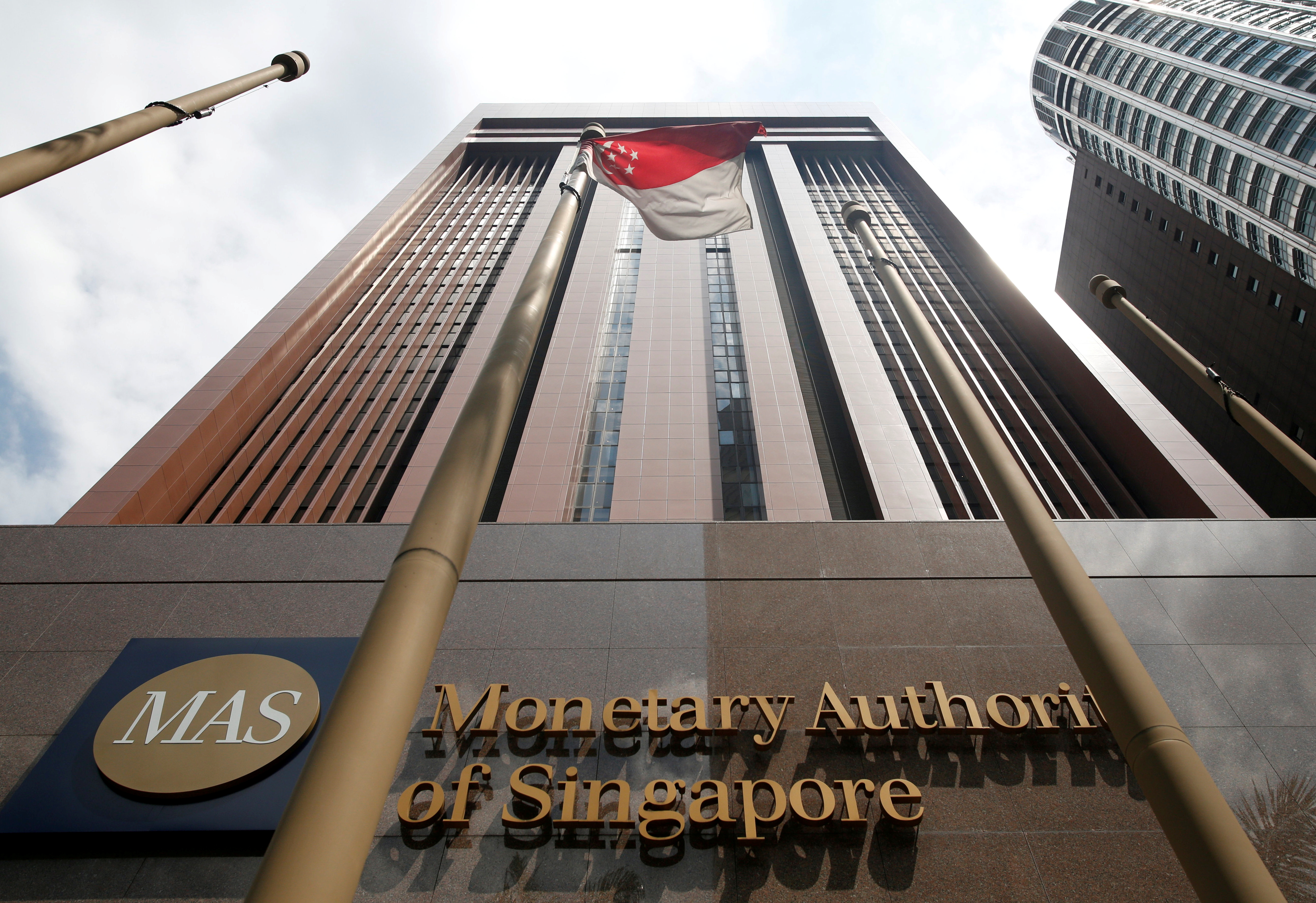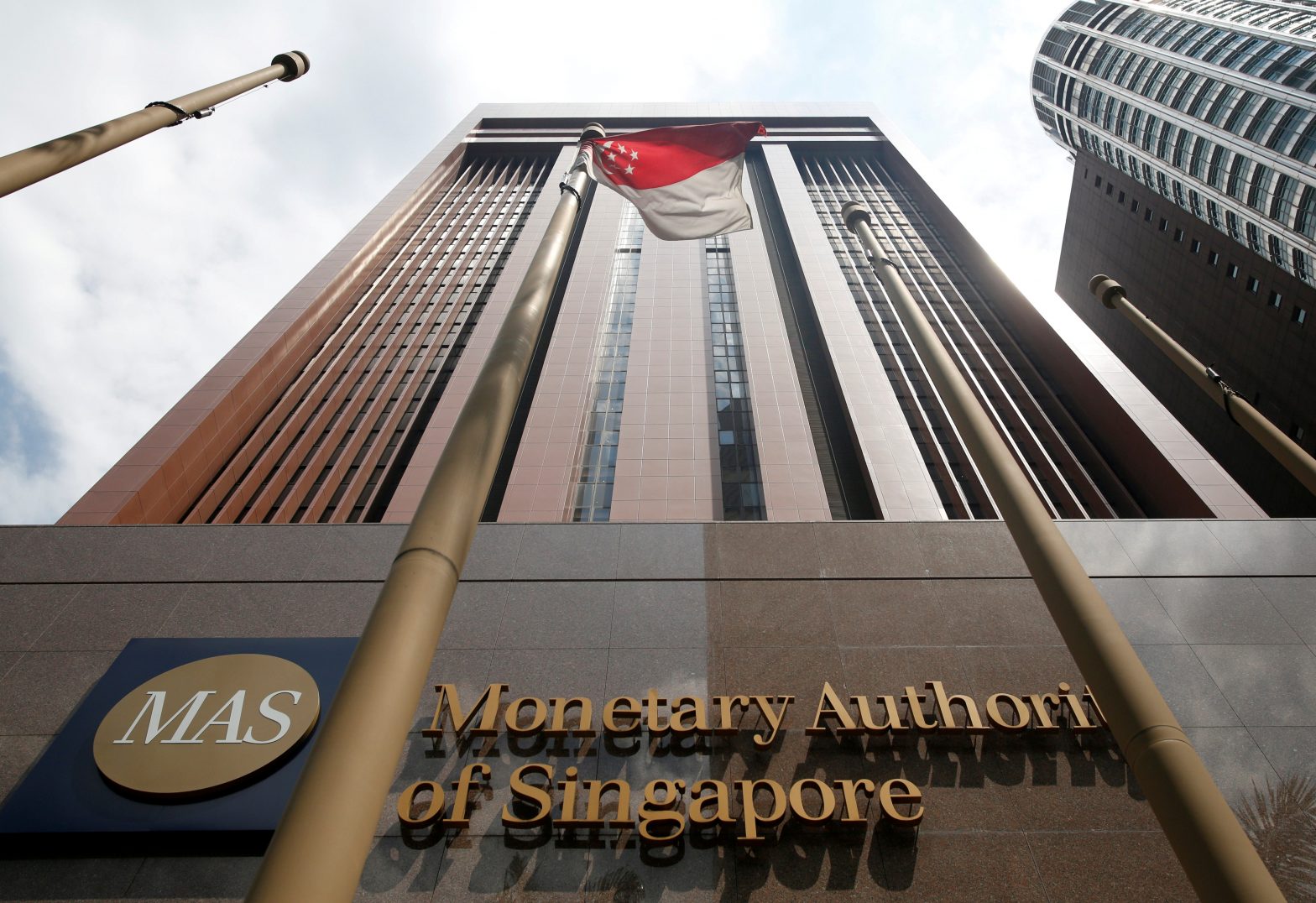
A view of the Monetary Authority of Singapore’s headquarters in Singapore June 28, 2017. REUTERS/Darren Whiteside/File Photo
SINGAPORE, Aug 15 (Reuters) – Singapore’s central bank released a regulatory framework on Tuesday intended to bolster the stability of single-currency stablecoins.
The framework will apply to non-bank issuers of single-currency stablecoins pegged to the Singapore Dollar or any G10 currencies where their circulation exceeds S$5 million, said the Monetary Authority of Singapore (MAS).
These coins would be labelled as MAS-regulated stablecoin. The central bank has to hold legislative consultations before Parliament passes amendments that would bring the framework into force.
Single-currency stablecoins are a type of cryptocurrency pegged to a traditional asset like national currencies. Currently, only one stablecoin has been issued in Singapore.
“When well-regulated to preserve such value stability, stablecoins can serve as a trusted medium of exchange to support innovation, including the ‘on-chain’ purchase and sale of digital assets,” said the MAS in a statement.
Last year, the MAS pointed to “high profile failures” such as the collapse of the TerraUSD (UST) and Luna tokens, saying it “illustrates the high risks involved in investments in cryptocurrencies”.
The U.S. is also seeking to regulate such coins, with the U.S. House Financial Services committee advancing a bill to establish a federal regulatory framework last month.
Issuers of stablecoins regulated by the MAS must fulfil requirements related to value stability, capital, redemption at par where issuers must return the par value of single-currency stablecoin to holders within five business days from a redemption request, and disclosure to users on audit results.
The regulations include issuers having to maintain a portfolio of reserve assets “with very low risk”. The reserve assets must be at least at 100% of the outstanding single-currency stablecoins that are in circulation.
They must also maintain a minimum base capital higher than S$1 million or half of annual operating expenses.
Reporting by Xinghui Kok; Editing by Simon Cameron-Moore
Our Standards: The Thomson Reuters Trust Principles.
Xinghui previously covered Asia for the South China Morning Post and has been in journalism for a decade.
